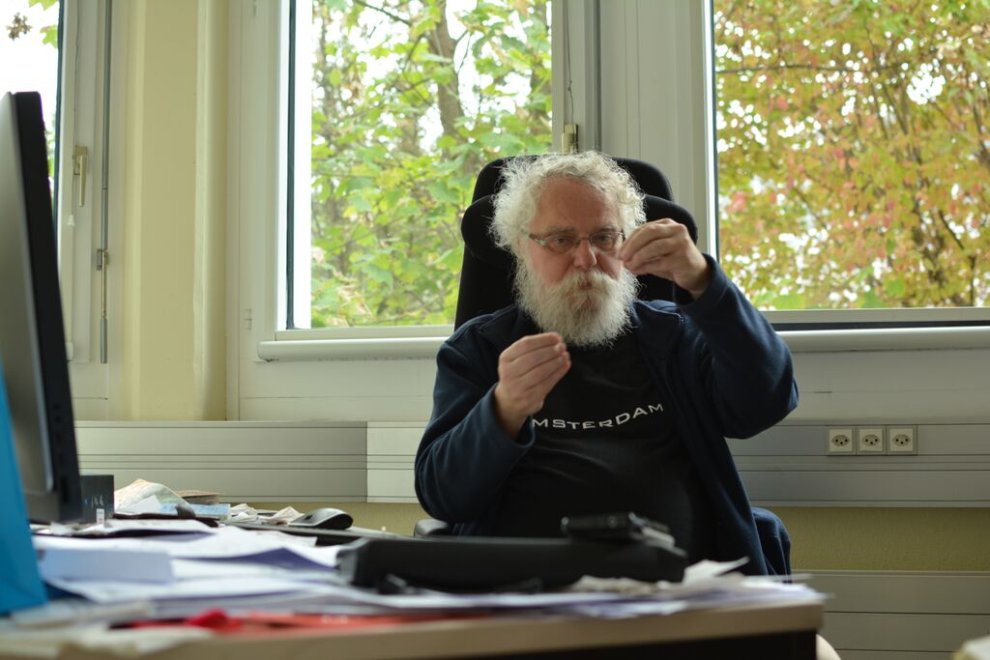
Our dear colleague and friend, Karel Šafařík, sadly passed away on Monday 7 October. Karel graduated in theoretical physics in Bratislava in 1976, and worked at JINR in Dubna for more than 11 years, participating in experiments on the phenomenology of particle production at high energies at Dubna and at Serpukhov.
In 1990, Karel joined the Collège de France and the heavy-ion programme at CERN and very soon became one of the most influential scientists in the OMEGA series of heavy-ion experiments at the CERN SPS (WA85, WA94, WA97, NA57). In 2002, Karel was awarded the Slovak Academy of Sciences Prize for his contributions to the observation of the enhancement of the production of multistrange particles in heavy-ion collisions at the SPS, one of the pillars of the CERN announcement of the observation of the quark–gluon plasma in February 2000. In 2013, he was also awarded the medal of the Czech Physical Society.
Karel was one of the founding members of the ALICE collaboration. As early as 1991, he was part of the small group working on the design of a dedicated heavy-ion detector for the LHC, which would then become the ALICE experiment. He had a central role in shaping ALICE, from the definition of physics topics and the detector layout, to the design of the data format, tracking, storage and analysis. He had a central role in convincing the collaboration to introduce two layers of pixel detectors, in order to reconstruct, amidst the thousands of tracks produced in central Pb–Pb collisions at the LHC, the topologies of charm hadrons decaying only a few tens of microns from the primary vertex. At the time, many people considered this to be impossible in heavy-ion collisions, and yet this has become today one of the pillars of the ALICE physics programme and long-term scientific strategy. He was the ALICE Physics Coordinator for many years leading up to and including the first ALICE data taking.
Over the years, Karel also made multiple contributions to ALICE Upgrade studies and became known as the “wise man” to be consulted for the trickiest questions. He had organised the ALICE Upgrade Week in Prague in 2022. He was remembered with a minute’s silence at the beginning of the first plenary session of the ALICE Upgrade Week in Krakow (which he had originally planned to attend), on the day of his passing.
Karel was a top-class physicist, with a sharp analytical mind, a legendary memory and a seemingly unlimited set of competencies ranging from higher mathematics to formal theory, from detector physics to high-performance computing. At the same time, he was a generous, caring and kind colleague, and over the years has variously supported, helped, mentored and guided a large number of ALICE collaborators.
Karel’s passing leaves a huge void. We shall miss him. Our thoughts go out to his family, friends and close colleagues.
His friends and colleagues in the ALICE collaboration
___
An obituary will also appear in the CERN Courier.
